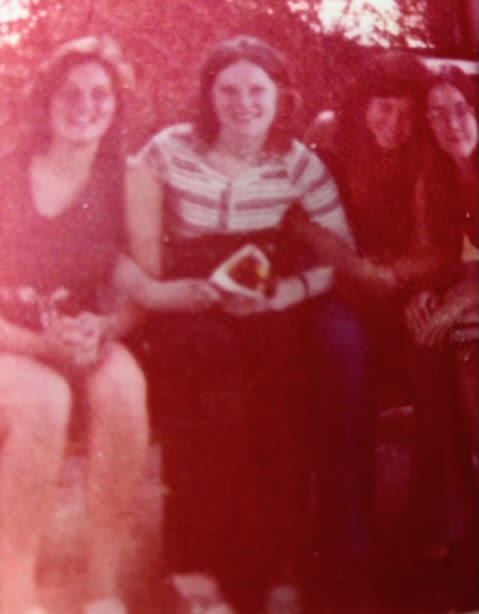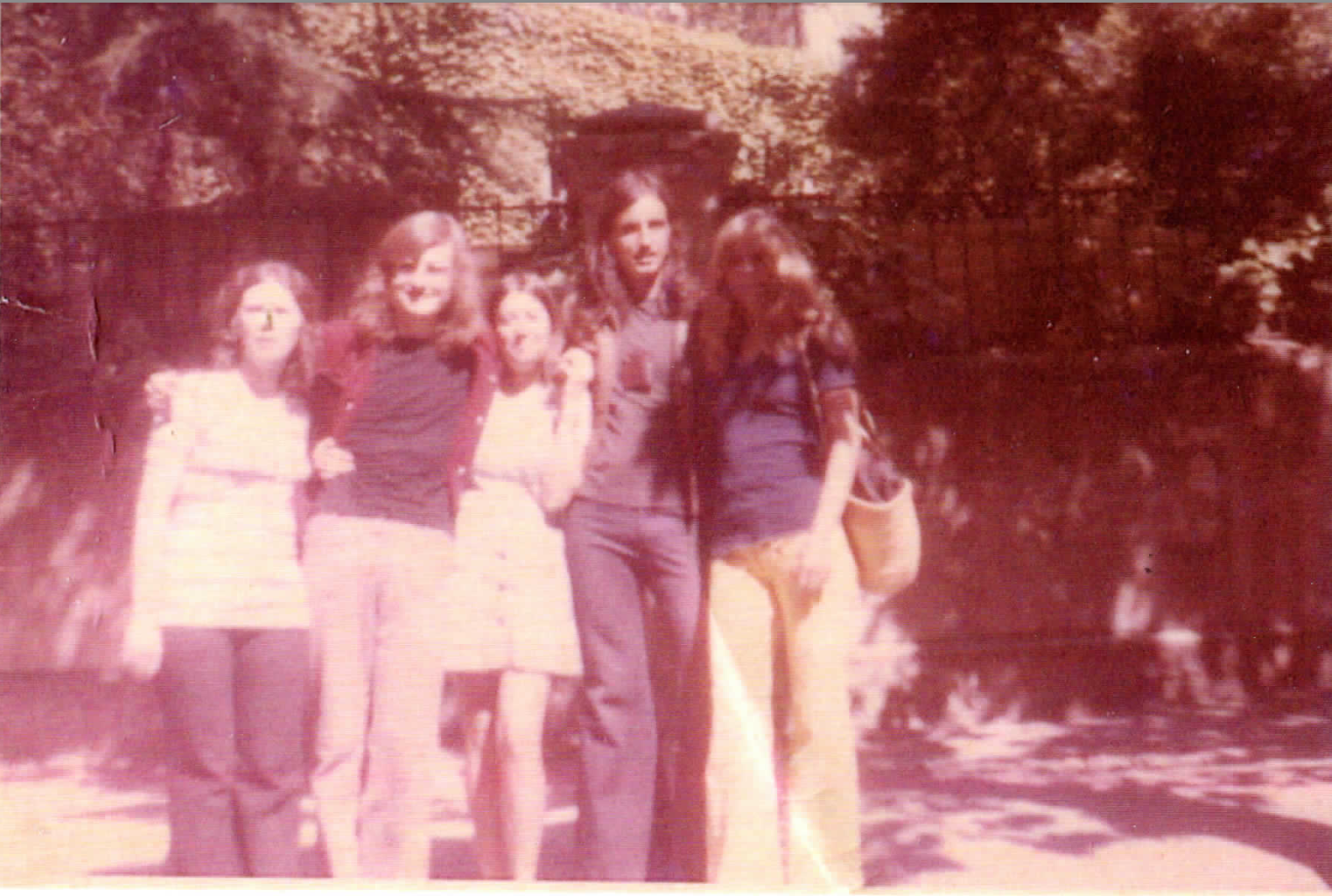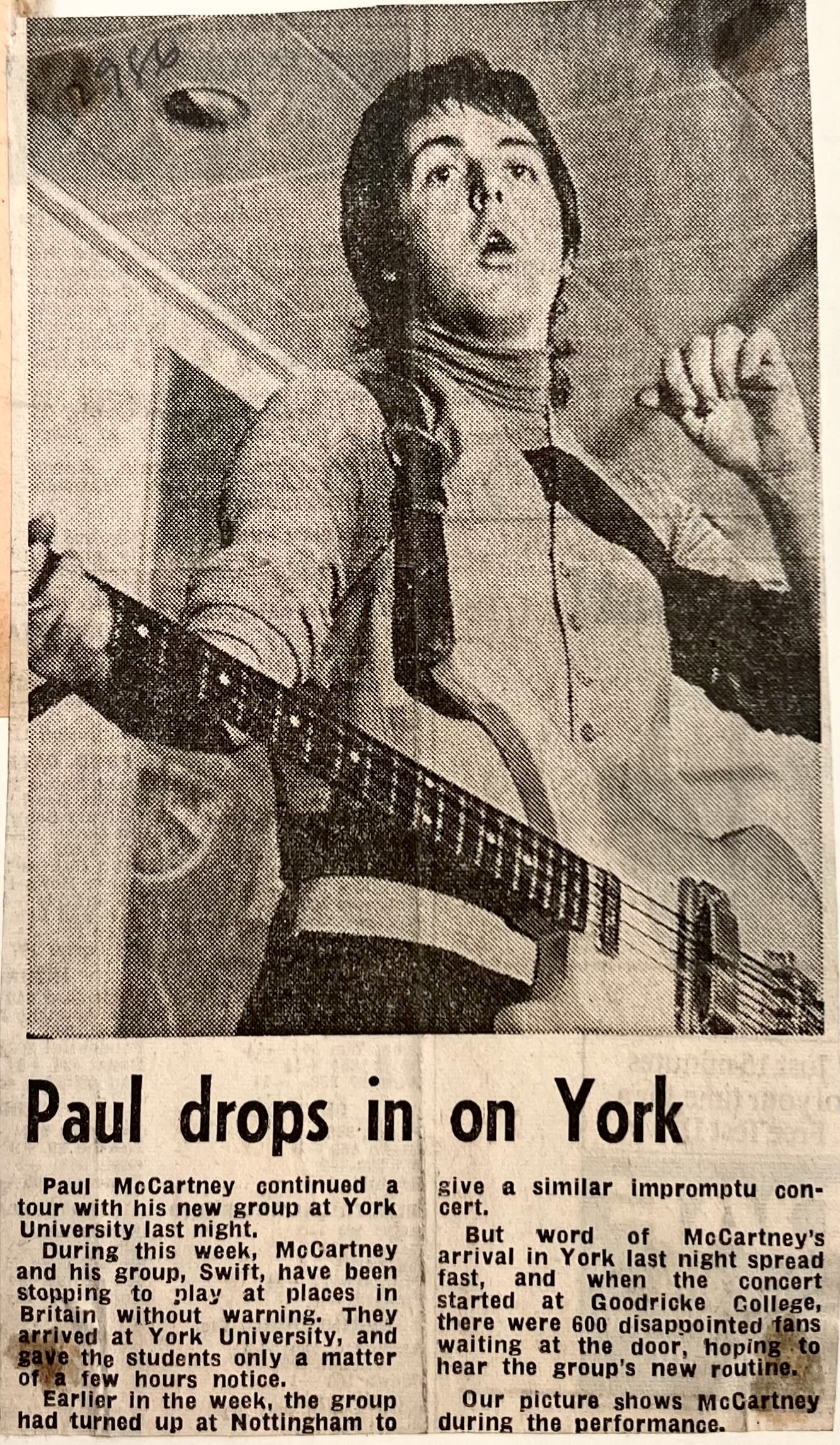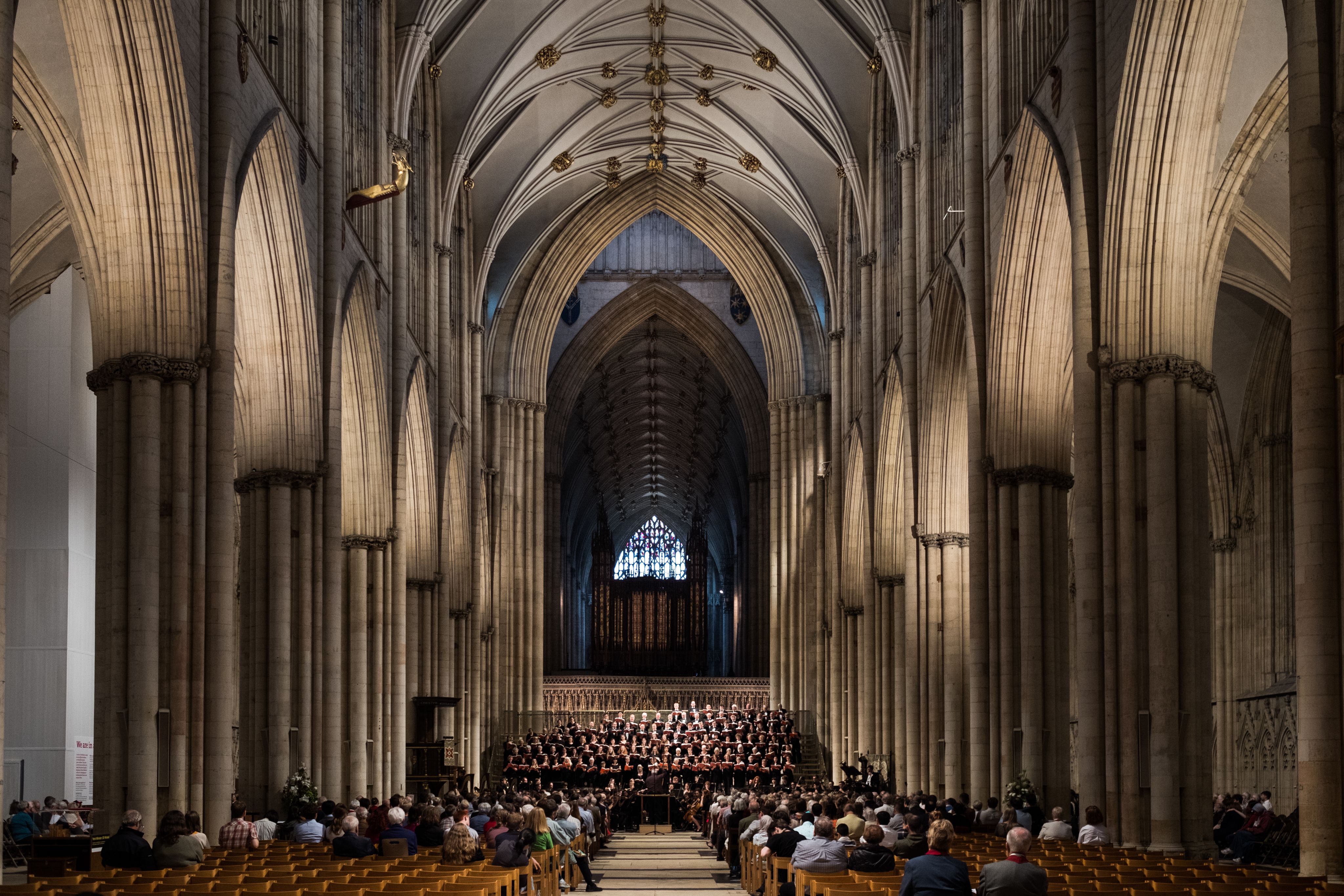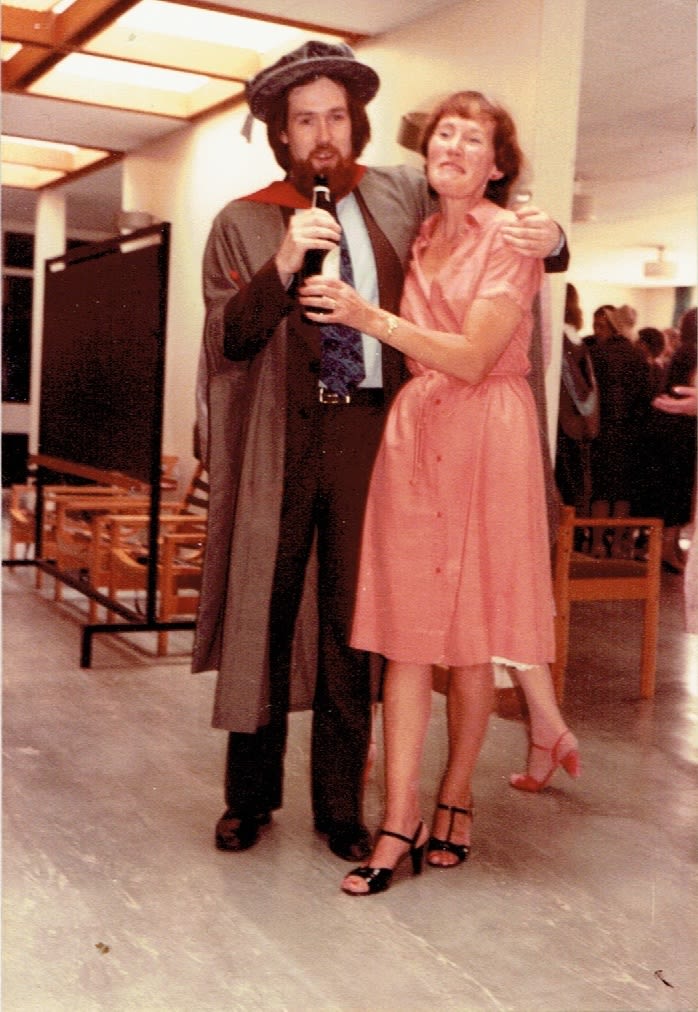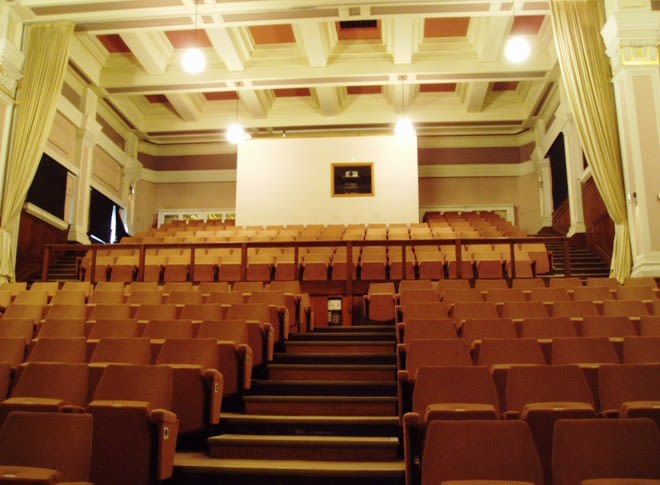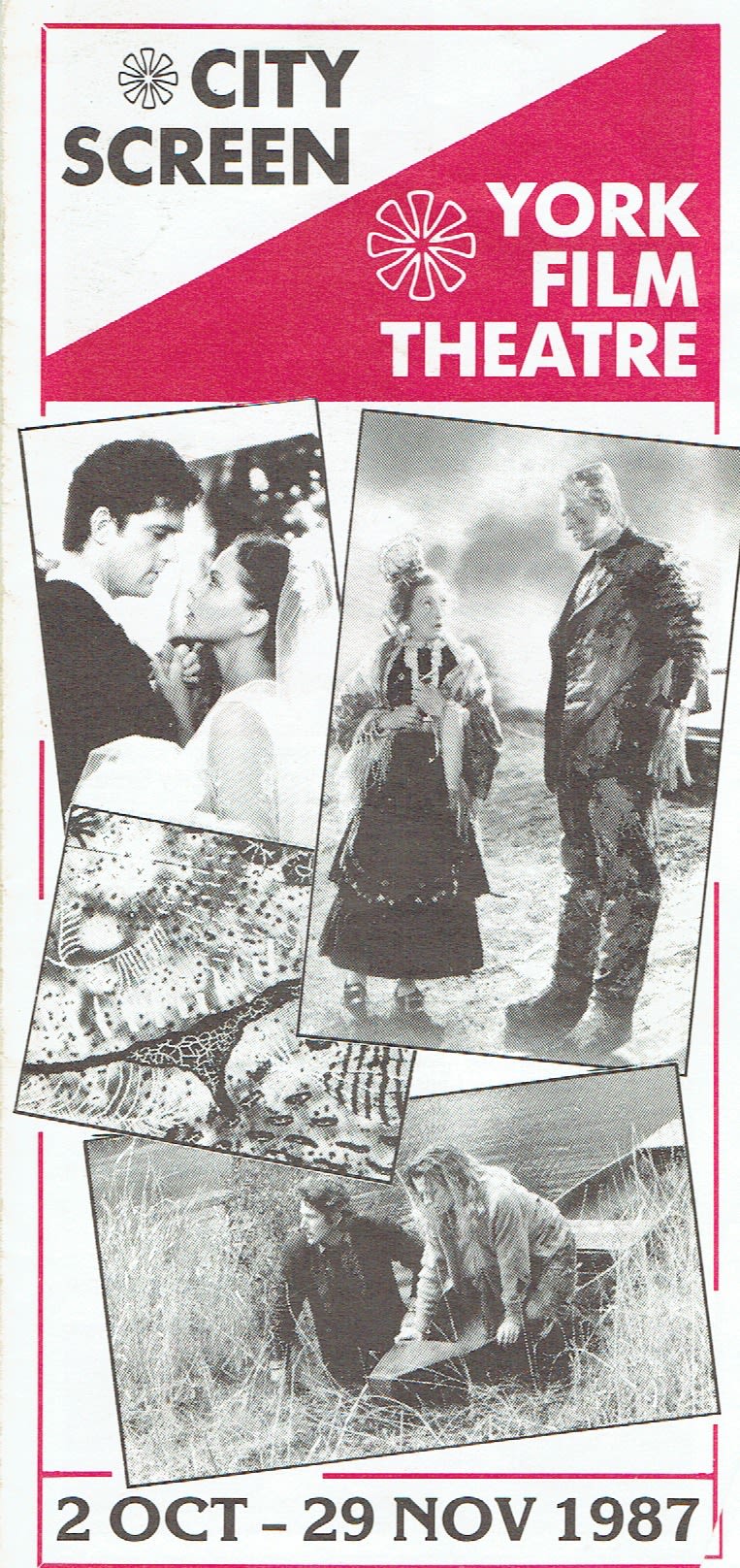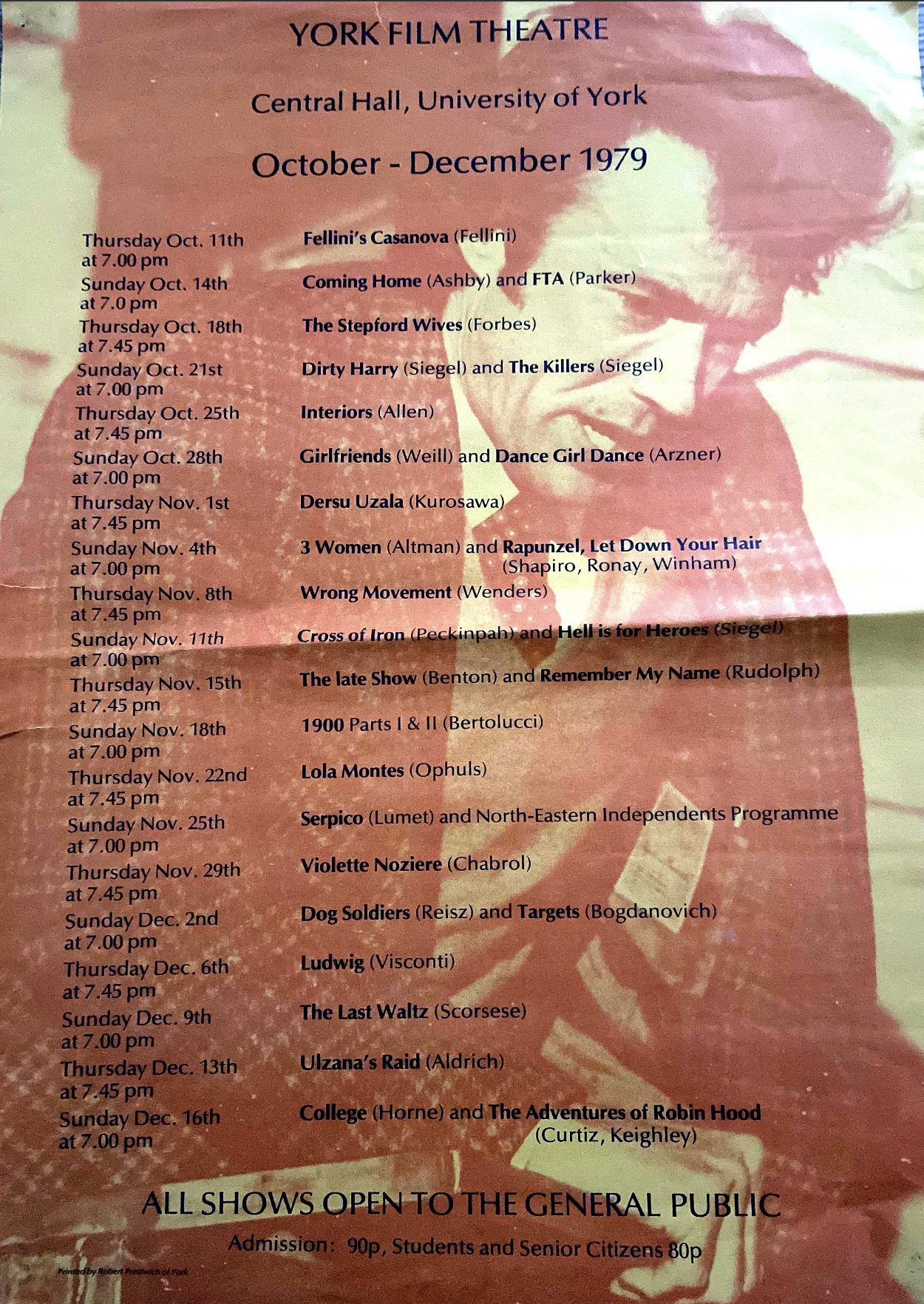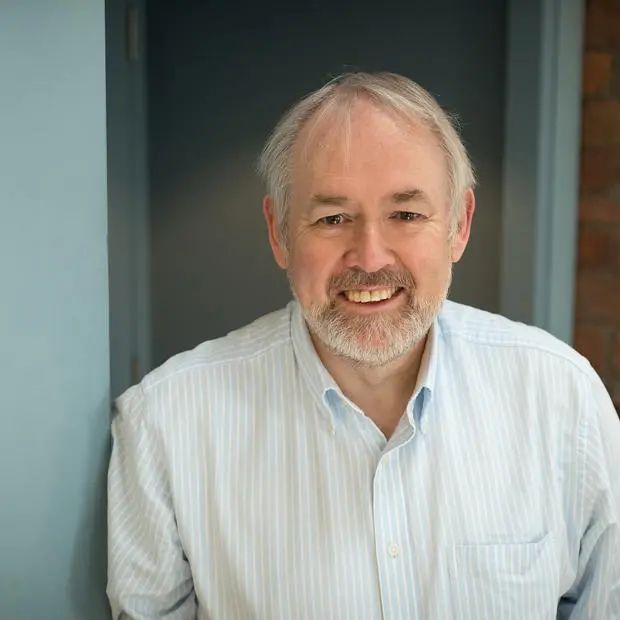"No act of kindness, no matter how small, is ever wasted."
- Aesop
The Legacy Newsletter | Edition 15, December 2024, University of York
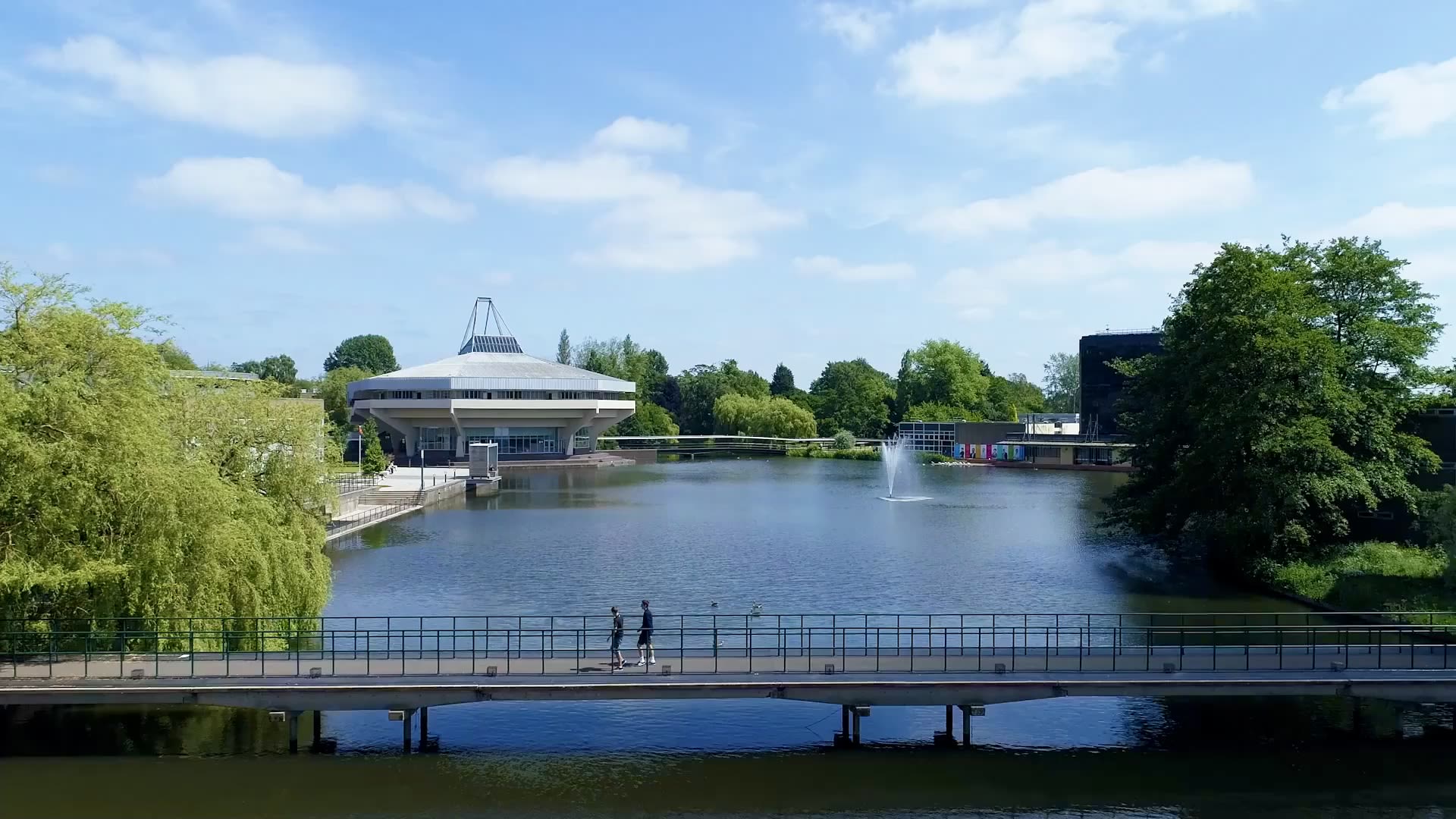
Welcome to the December edition of the Legacy newsletter. It is with great pleasure that we introduce you to alumni and Heslington Circle members, Bill Lawrence (Mathematics, 1982) and Alison Goff (History, 1974).
Alison appreciates the University of York because of the many opportunities it gave her and the opportunities it continues to give as one of the leading universities for academic excellence, research innovation, and student life. To demonstrate the University of York’s world class reputation, we are delighted to share that Professor Simon Gilbody, DSc, FMedSci, Professor of Psychological Medicine and Psychiatric Epidemiology, has been recognised in the top one percent of the world’s most influential published scientists. Professor Gilbody said:
“Whilst it is nice to see my team’s research so widely cited and recognised in this way, we are driven by the need to tackle the epidemics of mental ill health and loneliness. We work across disciplines and departments to solve local and global problems using our research expertise.”
Bill Lawrence (Mathematics, 1982) talks about what York meant to him, and how he overcame his shyness and gained confidence through joining the University of York Film Society, which was a life changing moment that was to prove the start of an illustrious career in the cinema business.
We are grateful to Alison and Bill for pledging a gift in their will to support future University of York students. Legacy gifts of any size are crucial to shaping the future of the University.
Providing gifts for generations to come and, ‘allowing others to benefit from the shade’, reminds me of one of the University’s earliest gifts. In 1963, Kathleen Mary Stott (1905-1963) made a legacy gift to the University of York and dedicated one-fifth of her estate, valued at approximately £5,000, to establish a prize for scientific or medical research. Over 60 years later, the Kathleen Mary Stott Prize which recognises excellence in scientific or medical research has honoured and rewarded many generations of outstanding students at the University.
By remembering us in your will, you can make sure future students can follow in your footsteps without the barriers so many face. By letting us know you intend to leave a gift in your will we can make sure that your wishes are followed. If you would like to hear more about leaving a lasting legacy to York, please email me at Maresa Bailey maresa.bailey@york.ac.uk, or call me at 07385 976145. You can also download a free copy of our legacy brochure:
Maresa Bailey, Legacy Manager
Alison Goff, Heslington Circle Member
History, 1974
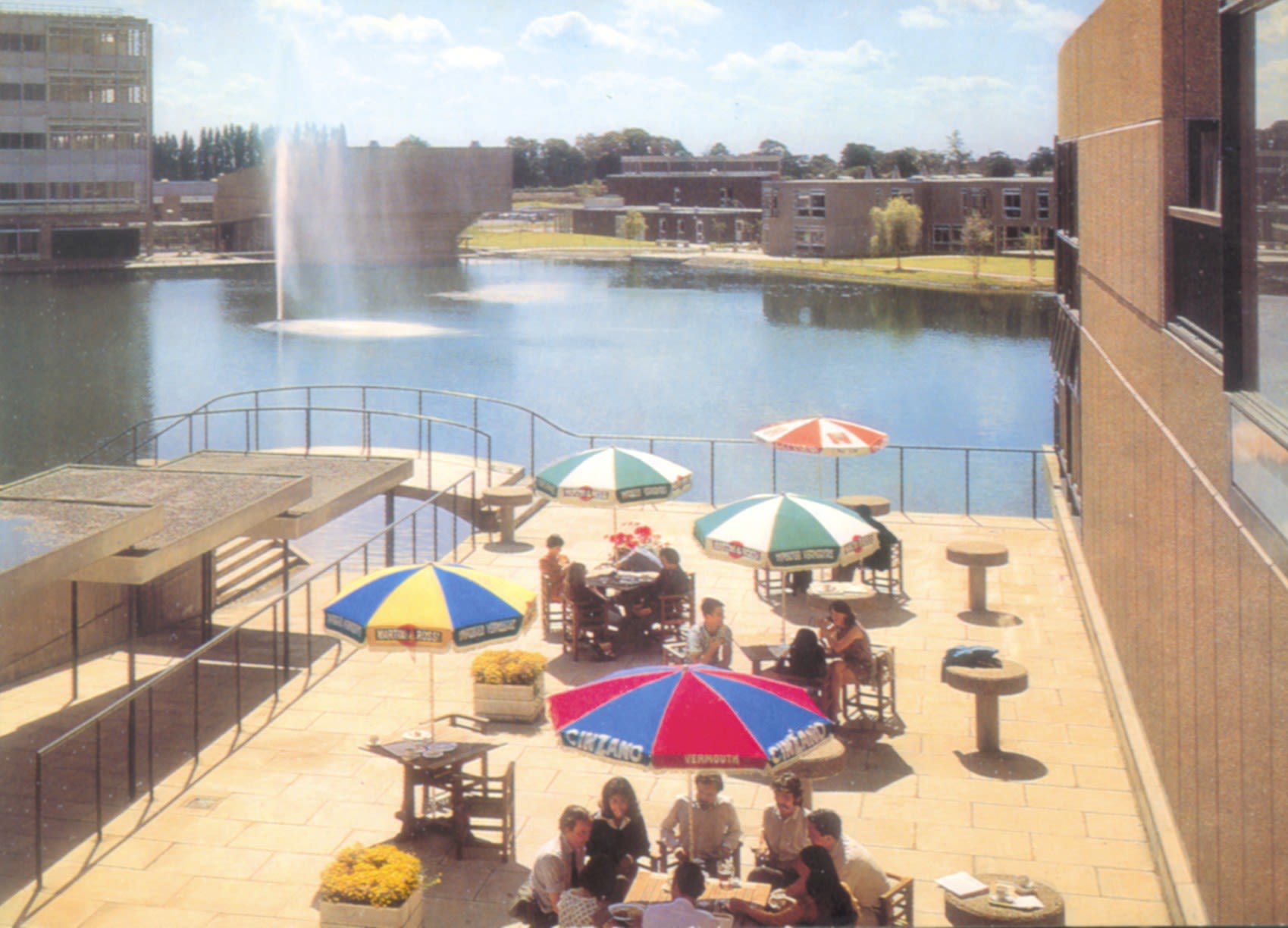
A perspective on life at the University of York, fifty years on.
I could not have imagined when I was accepted by the University of York in 1971 to read History the opportunities it would offer me to expand my intellectual capacity, to meet some very interesting people and to be offered some exciting international contracts to work abroad.
At that time Professor Gerald Aylmer was the Head of Department and his team of teaching colleagues included Dr Allen Warren, (my supervisor), Gwyn Williams, Barrie Dobson, Dr Malcolm Vale, and in the History of Art Department, Dr Richard Verdi. During my time at York I also joined the University choir, conducted by Peter Aston, and we sang “The Monteverdi Vespers” in York Minster hearing the marvellous acoustics resound in that wonderful Minster. I also remember going to some pottery classes, rehearsing the play “Hay Fever”, rowing on the River Ouse and teaching English in Halifax to immigrant children on Sunday mornings. During my time at York, when the Fitzwilliam String Quartet were in residence, Dimitri Shostakovich visited the Music Department, as he had dedicated his later quartets to them. Also during a music festival Paul Tortelier, the famous French Cellist, gave a recital of Bach’s Cello suites in York Minister.
At the end of the first year I was fortunate enough to be included on a six week language and cultural stay in Madrid, which was organised by Dr Bill Trythall, staying on the Madrid university campus. As we were very close to the Prado Museum, I made frequent visits to look at the fabulous art collection, including paintings by Velasquez. This trip was funded in part by Queen’s College, University of New York. It was really wonderful that the University of York offered me all of these cultural opportunities in addition to the fascinating History course that I was studying.
Having completed my Post Graduate Certificate in Education, I then applied to Voluntary Service Overseas who sent me to Thika, north east of Nairobi, in East Africa. I worked in the Salvation Army Secondary School for the Blind teaching both English Language and Literature in English. This included teaching some of the interesting novels of Chinua Achebe and Wole Soyinka and opened up a new genre of literature for me. My students from all over Kenya had no eyesight, often had a fragile family background, only had their school uniform to wear and were some of the most intellectually talented and musical that I have ever met. Some studied law at Nairobi University. Thika, which was made famous by Elspeth Huxley’s book “The Flame Trees of Thika” was the area where coffee and pineapples grew and where Del Monte had plantations and also where Kenya Canners had factories. I am still in touch with some of the staff I taught with there.
My second contract with The British Council was in Tabriz, in North Western Iran, which is where reputedly the first Iranian Revolution started. Again we had many excellent students, many of were very keen to leave Iran due to the extremely volatile political situation and head for America. I remember going to the airport in Tehran three times in order to leave the country but the first time it snowed and the airport was closed, the second time Ayatollah Khomeini was returning from Paris, so nothing was allowed to take off, but on the third occasion our flight took off to the applause of all of the passengers on board.
My third British Council contract was in the more peaceful country of Japan, and I lived in a very small mountain village called Komagane Shi, in Nagano Prefecture, where later the Winter Olympic Games took place. It was four hours by train from Tokyo and as it was so cold we had a special cold winter allowance. I lived in an apartment block with sixteen other teachers, some of whom taught French, Spanish, Bengali, Swahili, Nepali, and Malay. It was another wonderful opportunity to discover another part of the world and to visit the as yet undeveloped China. I am in touch with three of my former Japanese pupils, one of whom lives in the Netherlands, another lives in Switzerland and a third one lives in Palm Springs, California.
I could never have imagined on visiting York for the very first time that it would afford me the fascinating adventures that I have been able to enjoy.
Also, thanks to the Legacy team, I have recently been able to reconnect with Maggie, one of the girls with whom I shared a house in Fulford in my second year.
“I loved York because there were no barriers, no discrimination, there was a do something positive type of movement going on.”
I would like my legacy to go towards the area of greatest need and my hope is that for students studying now there will be even more exciting discoveries to be made and different parts of the world to travel to when they too graduate. My time at York meant everything to me and still does.
Madrid University, 1972
Madrid University, 1972
Spain, 1971
Spain, 1971
"I also saw Paul McCartney and Wings in the dining hall at Goodricke College." (article from York Evening Press)
"I also saw Paul McCartney and Wings in the dining hall at Goodricke College." (article from York Evening Press)
University of York Choir and Orchestra performing at York Minster
University of York Choir and Orchestra performing at York Minster
Bill Lawrence, Heslington Circle Member
(Mathematics, 1982)
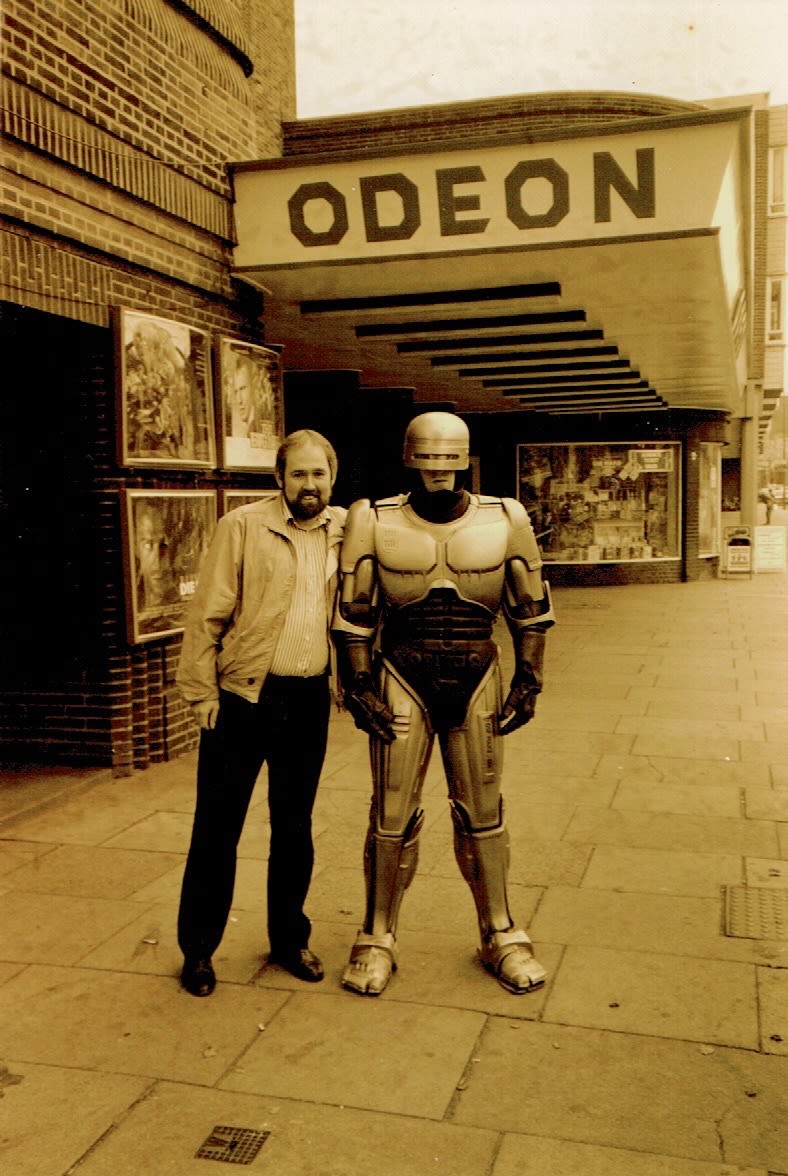
Early 1976 and I was coming to the end of my degree at Teesside Polytechnic. I was really enjoying maths more than ever. I wanted to continue with maths in my life for as long as possible, maybe even becoming a maths lecturer. I applied to Nottingham, Leeds and York. I interviewed at Nottingham, but didn’t like my potential supervisor. I was interviewed at Leeds, by two academics! They scared me. I didn’t hear from York. I still didn’t hear from York. My mother said, give them a call. No, I couldn't do that. Give them a call. I’m bullied by my mother to call the Maths Department at York and I get through to my potential supervisor who tells me that they are about to reject me, but only because they don’t do Mathematical Logic.
“But I’ve changed my mind and I want to do Number Theory.”
“Ah. Ok. Then that’s okay. We’ll send you a letter,” said Dr Jackson.
That phone call changed my life and in autumn 1976 I arrived at York. Overwhelmed that I was at University - not a polytechnic - not by the fact I was doing research. I’m a late starter, but life catches up with me as Prof. Andrew Tudor said many years later, but more of him soon.
Life in Teesside was rather isolated and I was determined to throw myself into university life, despite my inherent shyness, but, as a graduate student, it wasn’t so easy. I joined societies that soon went by the wayside, I went to drinks events, and answered notices posted from other students. Eventually, I found a base of friends. By my second term, I’d also discovered the University of York Film Society.
Every Tuesday night in PX001, I was watching films I’d never dreamt of before, learning more about the history of movies and the different genres, the world of cinema. I joined the programming committee and before long found myself discussing films I’d never heard of with people more knowledgeable than me.
Then there was the York Film Theatre, every Thursday and Sunday in the Central Hall, that became a home away from home for the next 15 years. I watched films at every opportunity and no matter what was screening. A three hour documentary on the Panama Canal, bring it on. Classic French cinema, the golden age of Hollywood, new independent cinema from the North East, it was all to be watched and more to learn. Soon I was gaining free admission as a door usher and tearing tickets as customers came into the Hall. And that brought me to Andrew Tudor, Chair of York Film Theatre and casual chats about films, learning more about cinema and theories of film.
It soon became apparent that I wasn’t going to be a maths lecturer and I started to wonder what my alternative was. One day, walking down Heslington Road, into York, I had a sudden feeling that I could do with watching a film, and wondered when was the last time I had seen a film. After a little thought, I realised it was the previous night. I was obsessed.
From that point, as Dr Jackson kindly said, in references, I was working part-time on my thesis and part-time for the Film Society.
After three years, and my research is coming to an end, fortune hits. The Central Hall Manager decides he doesn’t want to work evenings anymore and so the York Film Theatre has to employ a member of staff for the first time. They are looking for a front of house manager, paid by the hour on Thursdays and Sundays for about 20 weeks per annum.
Courage plucked, I go to the open phone booth behind the porters’ lodge in Vanbrugh College and, on the internal line, call Andrew Tudor, Professor of Sociology and Chair of York Film Theatre and timidly say I am interested in the job. To my shock, he says, ‘you can have it.’ No advertising, no equal opportunities, but apart from it being a dream job for me and a great opportunity, it wasn’t that much of a job in terms of income, but another life changer, and my first professional job in the cinema business.
From 1979 to 1991, I was given the privilege to learn how cinema works, from programming to receiving films and preparing them for projection; from organising publicity and print to selling tickets. It was a great learning experience and set me up well. From 1984 I was also working for a local independent film production and York Arts Centre, creating a full-time portfolio.
A remaining frustration was that while Central Hall was a great venue, it was a struggle to get audiences to come onto campus from the city. The Director of York Leisure Services was very supportive and after a couple of experiments he arranged a grant to help us install 35mm projection equipment and screen into the Tempest Anderson Hall at the Yorkshire Museum. We called this City Screen and would later transfer to the cinema in Coney Street. This opened in 1987 and was a great success regularly selling out its 300 seats.
I left the best job in the world, York Film Theatre to take on a greater challenge that became the next best job in the world at the National Museum of Photography, Film & Television in Bradford.
During 16 years at the Museum I became Head of Film, in charge of 3 cinemas, set up the Bradford Film Festival, Bradford Animation Festival and Bite the Mango Film Festival (celebrating Black and Asian cinema) and played the key role in setting Bradford to become the UNESCO City of Film, the first in the UK.
I met some great people from the industry and became adept at interviews, from Michael Wilson (producer of the Bond movies) to acting as Richard Kiel’s (Jaws from Bond) walking stick. Poor man had severe back problems, but he was big and I was just the right height to lean on. Lord David Puttnam was a great supporter of the Museum and chaired the film committee. One of our favourite guests was Jack Cardiff who started on stage age 6 and then became one of Britain’s great cinematographers, filming classics for Michael Powell, Black Narcissus, The Red Shows. And then there was 1996 celebrating the work of Tony Richardson (Bradford born) with visits from his daughters Natasha and Joely Richardson and a chance to hold an Oscar!
But most enjoyable were the customers who would come from around the world to see the Museum and its facilities. I loved being in the cinema and seeing the joy (or disappointment) from people after watching a film, standing at the back of an auditorium with a full house, such a wonderful experience.
So, safe to say, those three phone calls changed my life - and for the better.
Those sliding door moments were the defining events that gave me a direction, that has given me many opportunities to meet extraordinary people from those who bought tickets from me, to those who made some of the films I’d greatly admired and, more than anything, gave me satisfaction in providing joy and entertainment to others.
“There were key people in my life who put me on that path - my mother, Terence Jackson, Andrew Tudor - but only one institution, the University of York. I owe it so much.”
Bill's graduation in 1982
Bill's graduation in 1982
Bill with Robocop outside the Odeon in York, 1988
Bill with Robocop outside the Odeon in York, 1988
Tempest Andersen Hall at the Yorkshire Museum, once the 'City Screen'. Today, the hall is still occasionally used for film screenings, acting as a venue for the Aesthetica Short Film Festival.
Tempest Andersen Hall at the Yorkshire Museum, once the 'City Screen'. Today, the hall is still occasionally used for film screenings, acting as a venue for the Aesthetica Short Film Festival.
City Screen and York Film Theatre's first joint season in 1987
City Screen and York Film Theatre's first joint season in 1987
York Film Theatre programme, October to December 1979
York Film Theatre programme, October to December 1979
Bill Lawrence
Bill Lawrence
The Heslington Circle
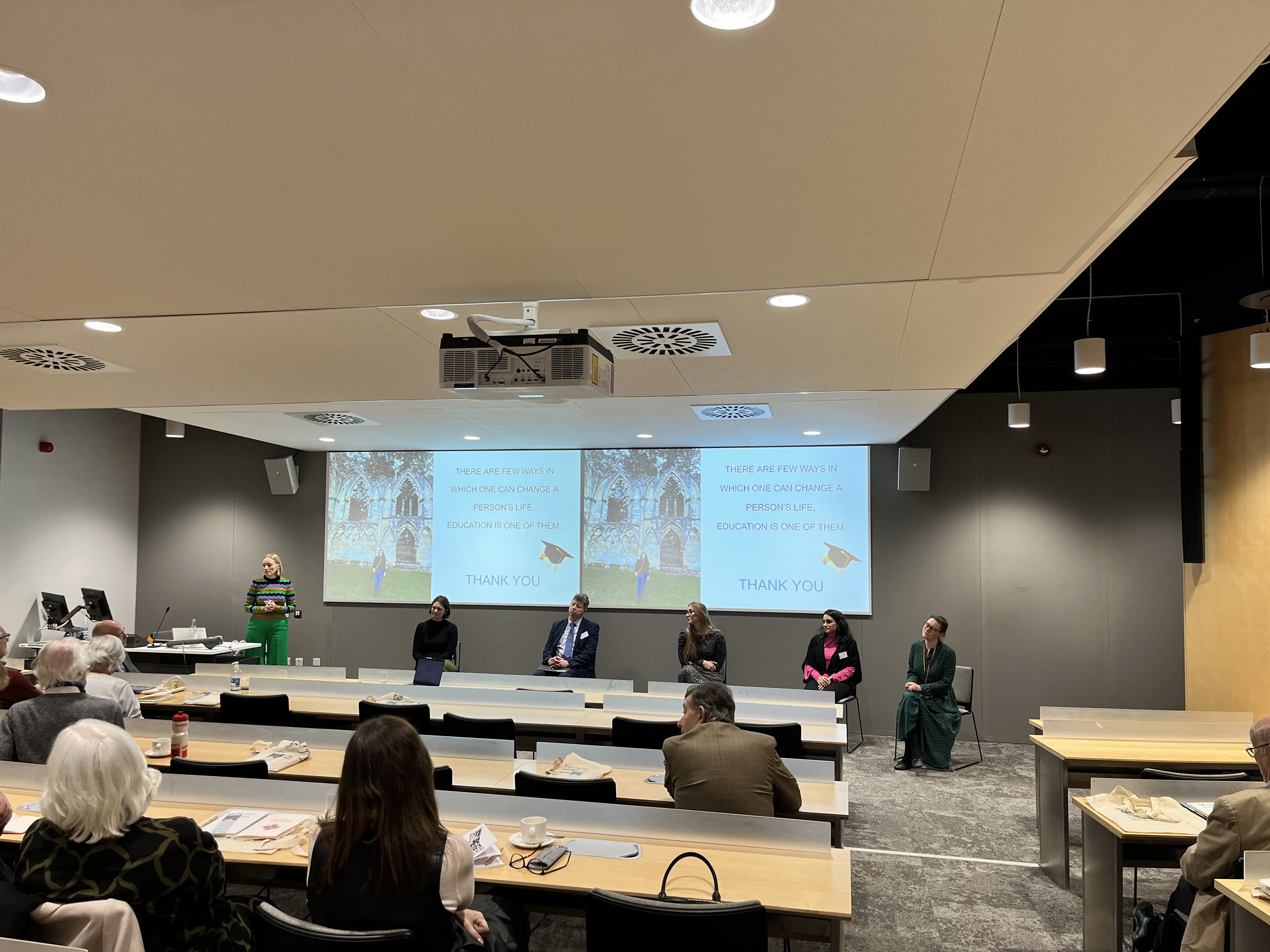
The Heslington Circle
Both Alison and Bill are Heslington Circle members.
The Heslington Circle was established in 2012 by then-Deputy Vice Chancellor Professor Felicity Riddy. Twelve successful years later, the Heslington Circle continues to celebrate the thriving community of friends, staff and alumni who intend to leave a gift in their will to the University of York.
A highlight of the Heslington Circle calendar is our annual celebration event, where members are invited to connect, reminisce and hear directly from our scholars and academics about the innovative research they are producing. Our next event will be taking place on Saturday April 12, 2025 and if you haven’t already done so, you can register your interest below.
If you would like more information about the Heslington Circle, please contact me directly at maresa.bailey@york.ac.uk.
YuPlan January 2025
Your next opportunity to get free advice on estate planning, writing a will and inheritance tax.
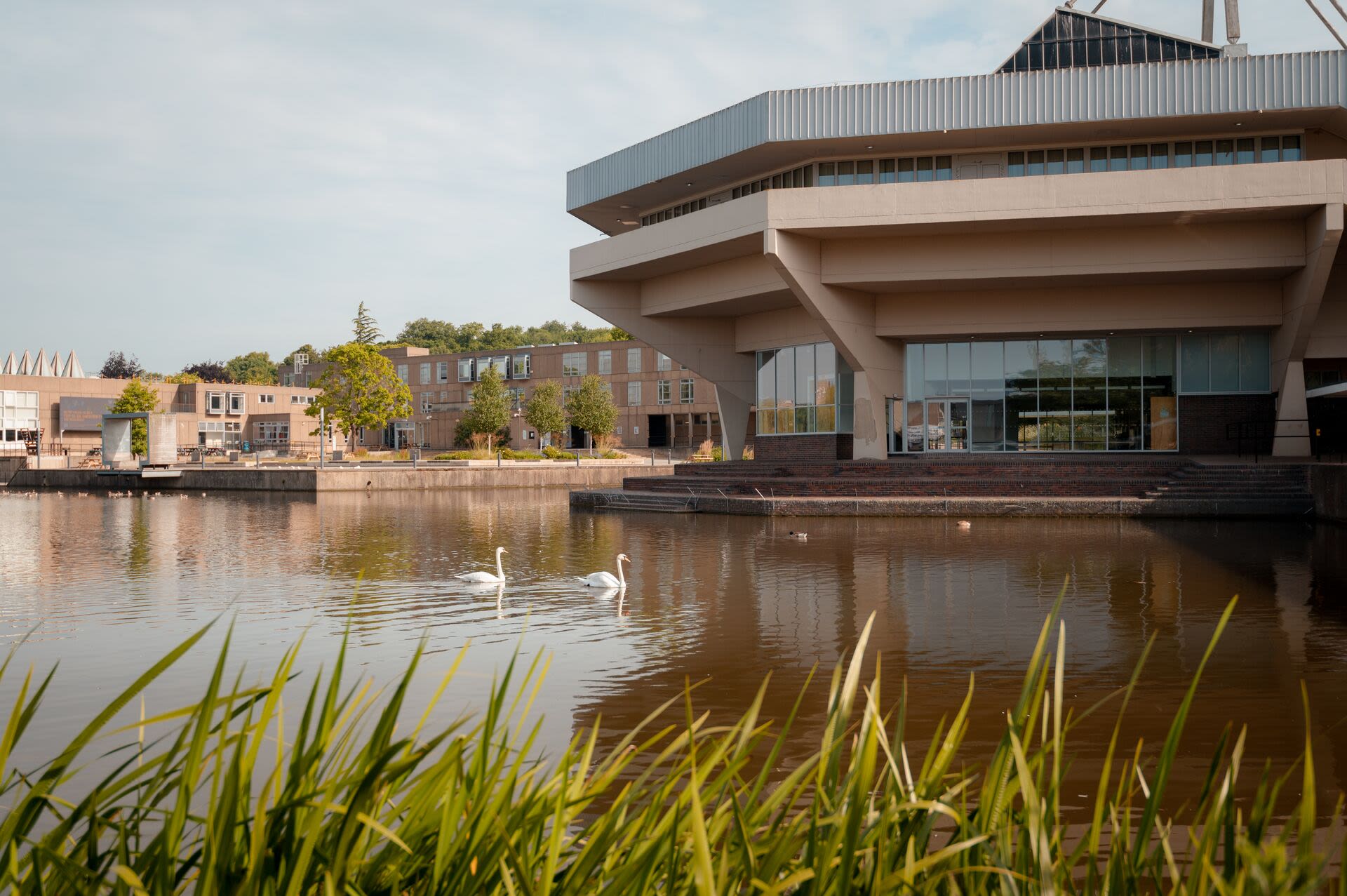
Our next YuPlan, a will writing and estate planning session will take place online on Thursday, January 23 from 5pm - 6.30 pm. This event is a partnership between local York solicitors Crombie Wilkinson and the Office of Philanthropic Partnerships and Alumni. It will cover:
- Will writing and inheritance tax advice
- Estate planning and planning finances
- Power of Attorney
- Important changes following the October 2024 budget
- Q&A - Ask the experts
We look forward to welcoming you in January. If you have any questions please contact:
Maresa Bailey, Legacy Manager, at maresa.bailey@york.ac.uk.
Gifts In Wills and Tax Benefits
The University of York is an exempt charity under Schedule 3 of the Charities Act 2011. As such, any gift within your will falls outside of inheritance tax. Giving as part of your will planning can reduce the Inheritance Tax rate on the rest of your estate from 40% to 36%, if you leave at least 10% of your 'net estate' to a charity.
Crombie Wilkinson - 25% discount
Having an up to date will is the only way to make sure that the people and causes you care about are looked after and your wishes followed. Crombie Wilkinson have kindly given 25% off their regular fees to University of York alumni, staff, and the rest of our community.
Octopus Legacy - Write a will for free
The University has partnered with Octopus Legacy to offer a free will writing service. This service is absolutely safe and secure, with no obligation, though we ask that you consider remembering the University of York, and if you do let us know so we can say thank you.
Thank you
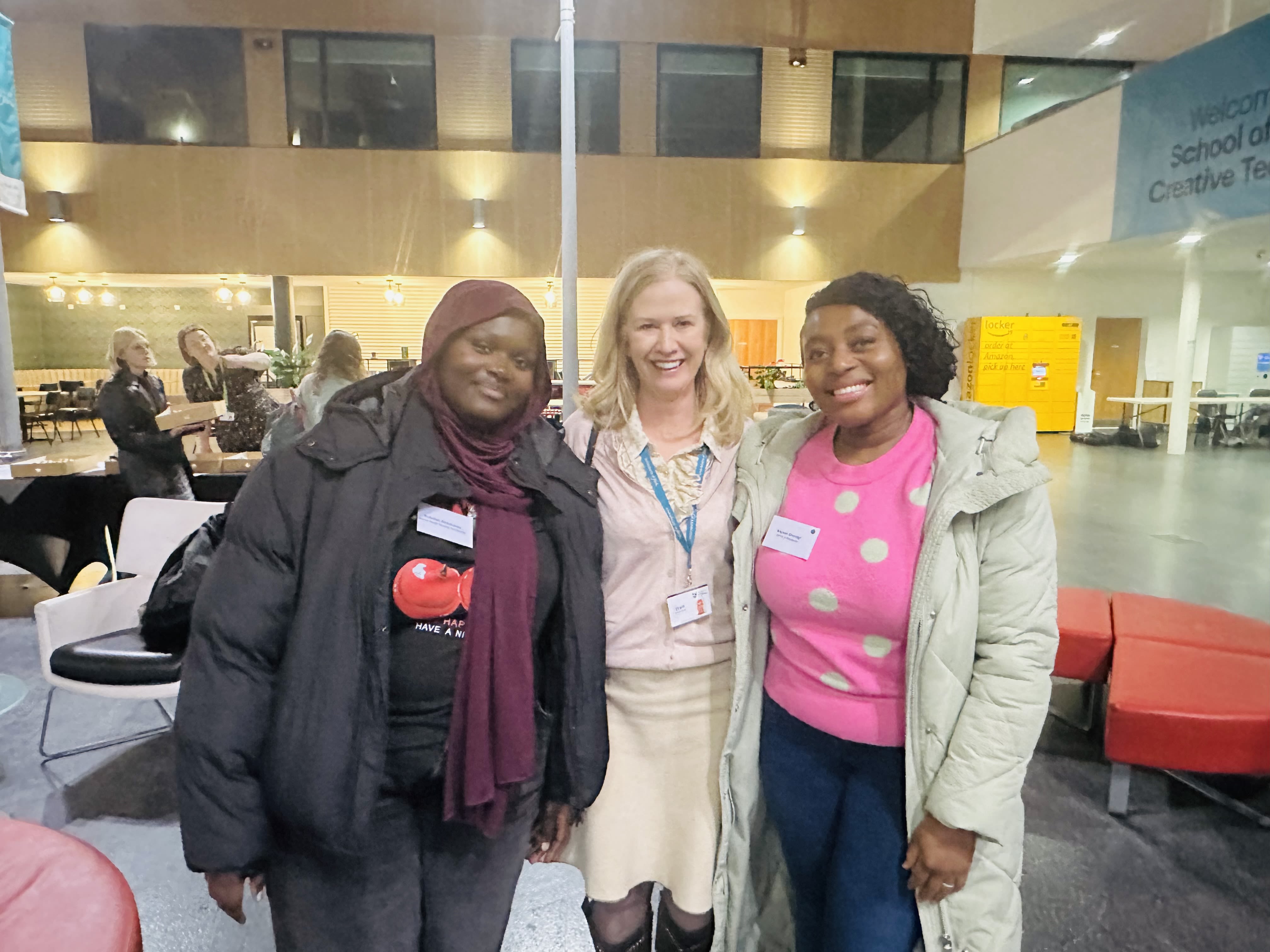
I hope you have enjoyed this edition of the Legacy newsletter. The photo above was taken at our recent Scholars Reception event, where I had the privilege of spending time with two incredible young women, Rufaidah and Allyson. Both are Mental Health Nursing students and very grateful scholarship recipients.
“By receiving the lifeline of a scholarship, my financial burden has been lightened. I truly hope that one day I will be able to help students achieve their goals just as you have helped me. This scholarship has opened doors and broken down barriers for me which I thought were not possible. Thank you.”
- Allyson, Mental Health Nursing student and scholarship recipient
If you're considering leaving a gift in your will, please contact me to discuss the many options available to leave a lasting legacy like the one made in 1963 by Kathleen Stott. Your gift can help talented students access the opportunities they need to thrive at the University of York. Every donation, no matter how big or small, plays a vital role in ensuring that education remains accessible to all.
To learn more about how a gift in your will can make a real difference, please contact me directly at maresa.bailey@york.ac.uk.
Thank you for considering this powerful way to give back and make an enduring impact.
For further information on leaving your legacy to York, you can download our legacy brochure.
To discuss anything in this newsletter further, please contact the Legacy Manager, Maresa Bailey at maresa.bailey@york.ac.uk.

